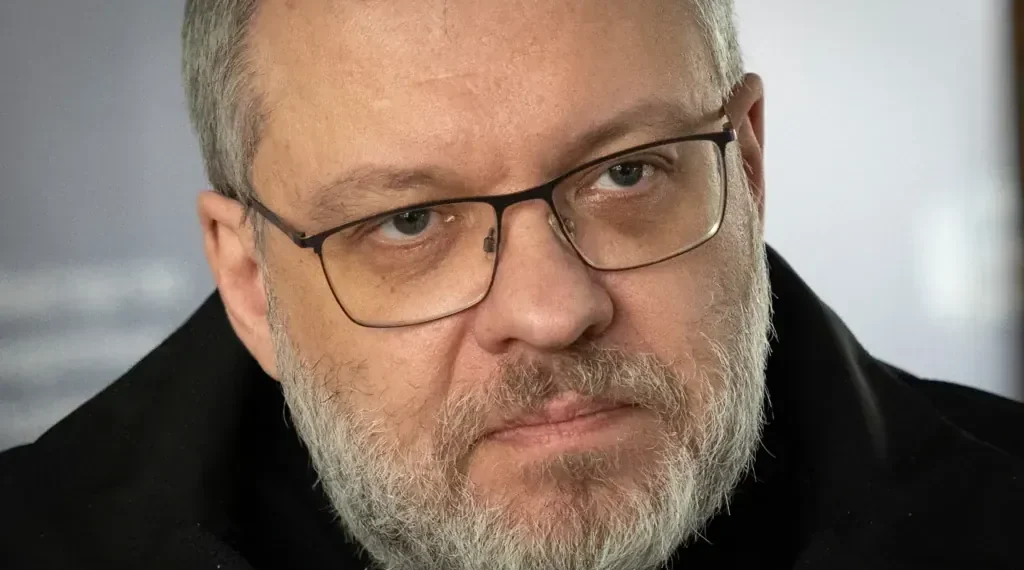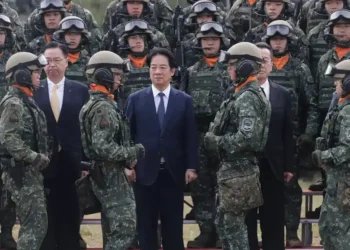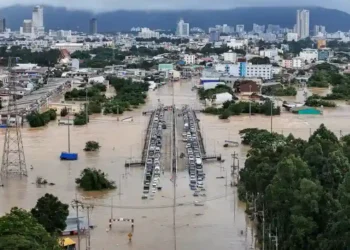Ukrainian Government Shaken by Energy Corruption Scandal as Key Ministers Step Down
As Ukraine confronts renewed Russian attacks on its energy grid, a deepening corruption scandal has triggered the resignations of two top ministers and cast new scrutiny on President Volodymyr Zelenskyy’s administration. The investigation, led by the country’s anti-corruption agency, alleges widespread embezzlement and kickbacks tied to the state-run nuclear power company Energoatom.
Mounting Political Pressure in Wartime
The crisis erupted after the National Anti-Corruption Bureau of Ukraine (NABU) revealed the results of a 15-month probe exposing what it called “Midas” — a complex network of bribes, abuse of office, and money laundering linked to contracts within the energy sector. The agency reported detaining five individuals and identifying at least seven others in connection with an estimated $100 million in illicit payments.
President Zelenskyy responded by urging the removal of Justice Minister Herman Halushchenko and Energy Minister Svitlana Grynchuk, both of whom later submitted their resignations. Prime Minister Yuliia Svyrydenko confirmed the departures, emphasizing that Kyiv must “restore public trust” as it continues to defend itself against Russian attacks.
The scandal has become one of Ukraine’s most serious domestic crises since Moscow’s full-scale invasion in 2022. With power outages sweeping across cities amid targeted strikes on critical infrastructure, revelations of corruption within the very sector managing national energy supplies have sparked public outrage.
Internal Fallout and Political Repercussions
Zelenskyy, elected on an anti-corruption platform in 2019, now faces renewed questions about how much his inner circle knew of the alleged scheme. Anti-corruption watchdogs — institutions he briefly sought to curtail last year before reversing course — have grown increasingly assertive, underscoring Ukraine’s commitment to transparency as a condition for continued Western aid.
Oleksandr Merezhko, a lawmaker from Zelenskyy’s Servant of the People party, warned that the scandal could have serious political and diplomatic consequences. “Internally, this will be used to undermine unity and stability,” he said. “Externally, our enemies will use it to question international support for Ukraine. It looks bad when citizens face blackouts while money is stolen at the top.”
What Investigators Found
NABU’s report stopped short of naming all suspects but described an organized group including a businessman, a former adviser to the energy minister, and an Energoatom executive overseeing physical security. The agency said the network systematically demanded 10–15 percent kickbacks from contractors in exchange for clearing bureaucratic obstacles.
Investigators conducted over 70 raids, gathering more than 1,000 hours of wiretapped conversations in which members used code names and discussed laundering proceeds through Kyiv-based offices. Energoatom said its operations have not been disrupted by the probe.
According to NABU, the corruption network exploited wartime regulations that barred contractors from suing essential service providers, enabling them to operate without accountability. Some recordings, which have not been independently verified, allegedly referred to $1.2 million directed to a former deputy prime minister under the codename “Che Guevara.”
Resignations and Accountability
Zelenskyy’s call for the resignation of Halushchenko and Grynchuk was accompanied by cabinet proposals to impose sanctions on Timur Mindich — a businessman and longtime associate of the president — and Alexander Tsukerman, another figure linked to the scandal.
“Among other things, this is a matter of trust,” Zelenskyy said in a televised statement. “Every official must prove integrity and be ready for scrutiny.”
Halushchenko, who previously served as energy minister before taking over the Justice Ministry in July, announced on Facebook that he would defend himself in court. “I believe suspension during investigation is a proper course of action. I will defend myself legally and prove my position,” he wrote.
No formal charges have been filed against him or Grynchuk.
A Presidential Ally Under Scrutiny
Much of the attention has focused on Mindich, 46, co-owner of Zelenskyy’s former media production company Kvartal 95 and a powerful figure in Ukraine’s growing defense-tech industry. NABU has investigated his possible connections to Fire Point, a drone manufacturer awarded several government contracts during the war.
Investigative journalist Yurii Nikolov, who examined the firm’s records, said its close ties to the administration raised concerns about favoritism. “The issue is that a company allegedly linked to Mindich has secured government contracts without open competition,” he told Ukrainian media. Fire Point executives deny any relationship with Mindich or impropriety in their bids.
Political analyst Oleh Saakian said the case could involve “tens of millions of dollars” and implicates “key players” within the government. “While not Ukraine’s largest corruption case, it is among the most sensitive, given it unfolded during wartime,” he said.
Energy Security and Delays in Fortifications
NABU’s recordings also point to discussions about delaying defensive fortifications at power sites until more profitable contracts could be arranged. An Associated Press investigation earlier this year found Ukraine’s Energy Ministry had failed to quickly strengthen critical infrastructure despite repeated warnings.
Particularly vulnerable were switchyards at nuclear plants responsible for distributing electricity nationwide. Lawmakers later cited these failures when calling for Halushchenko’s dismissal.
European Reaction and Aid Implications
The scandal has drawn concern among Ukraine’s European partners, who have provided extensive financial and technical assistance to stabilize its energy sector.
A spokesperson for German Chancellor Friedrich Merz said Berlin was “deeply concerned” by the allegations, noting that Germany has invested heavily in Ukrainian energy resilience. “Ukraine must continue its progress in combating corruption,” said government spokesperson Stefan Kornelius. “We trust the Ukrainian authorities will investigate transparently and bring accountability.”
The European Commission’s latest report also warned that corruption remains a major barrier to Ukraine’s integration with European institutions. Transparency International ranked Ukraine 104th out of 180 countries in its 2024 Corruption Perceptions Index — an improvement from 2014 but still below EU averages.
Despite the political turbulence, many analysts view NABU’s independence as a positive sign. “The silver lining is that Ukraine’s anti-corruption bodies are functioning,” lawmaker Merezhko noted. “No one is above the law, and no one is immune.”
This article was rewritten by JournosNews.com based on verified reporting from trusted sources. The content has been independently reviewed, fact-checked, and edited for accuracy, neutrality, tone, and global readability in accordance with Google News and AdSense standards.
All opinions, quotes, or statements from contributors, experts, or sourced organizations do not necessarily reflect the views of JournosNews.com. JournosNews.com maintains full editorial independence from any external funders, sponsors, or organizations.
Stay informed with JournosNews.com — your trusted source for verified global reporting and in-depth analysis. Follow us on Google News, BlueSky, and X for real-time updates.














